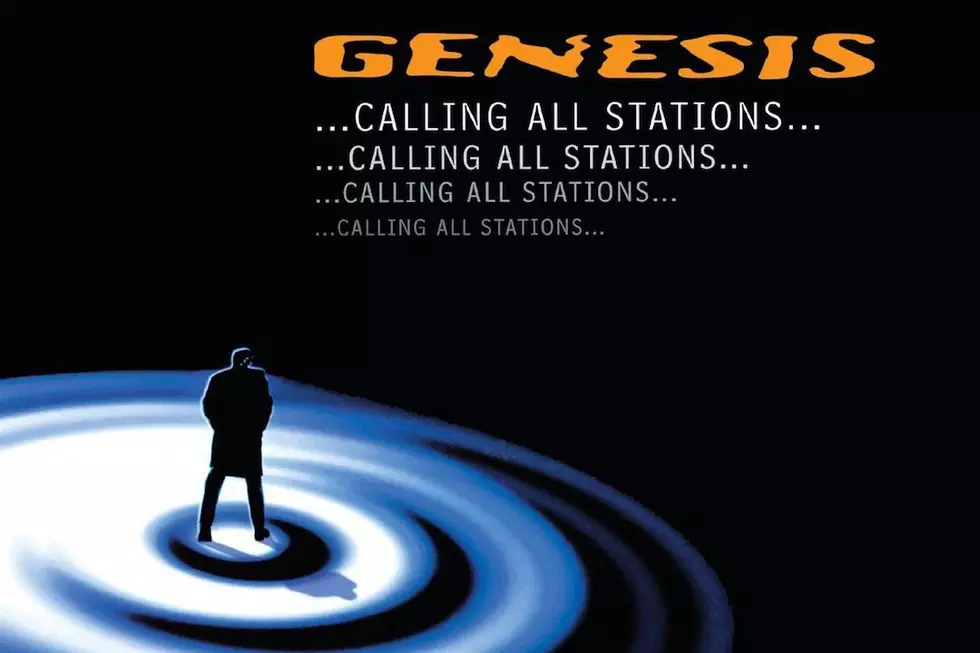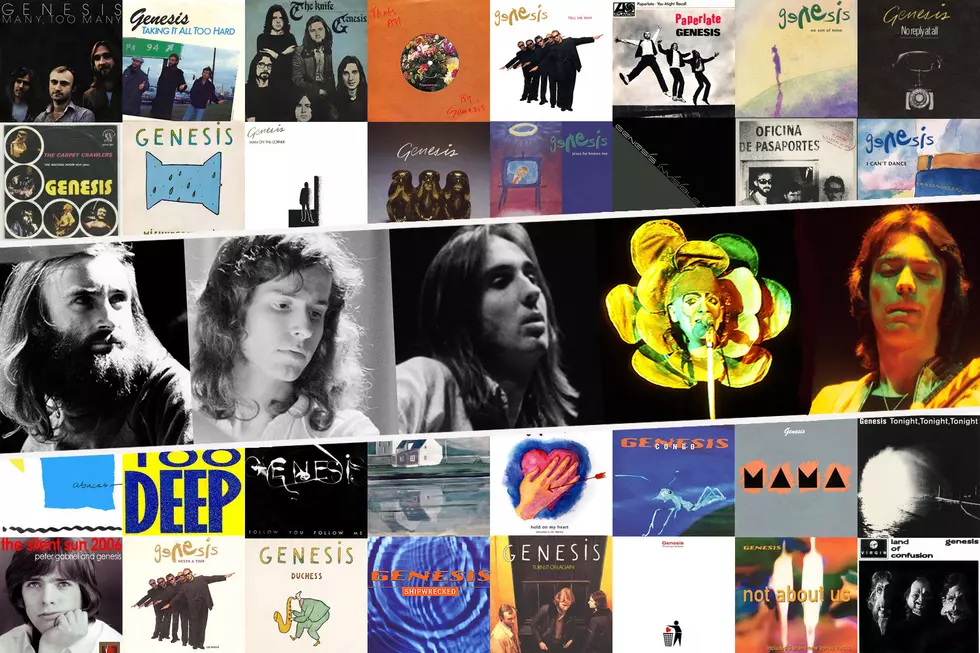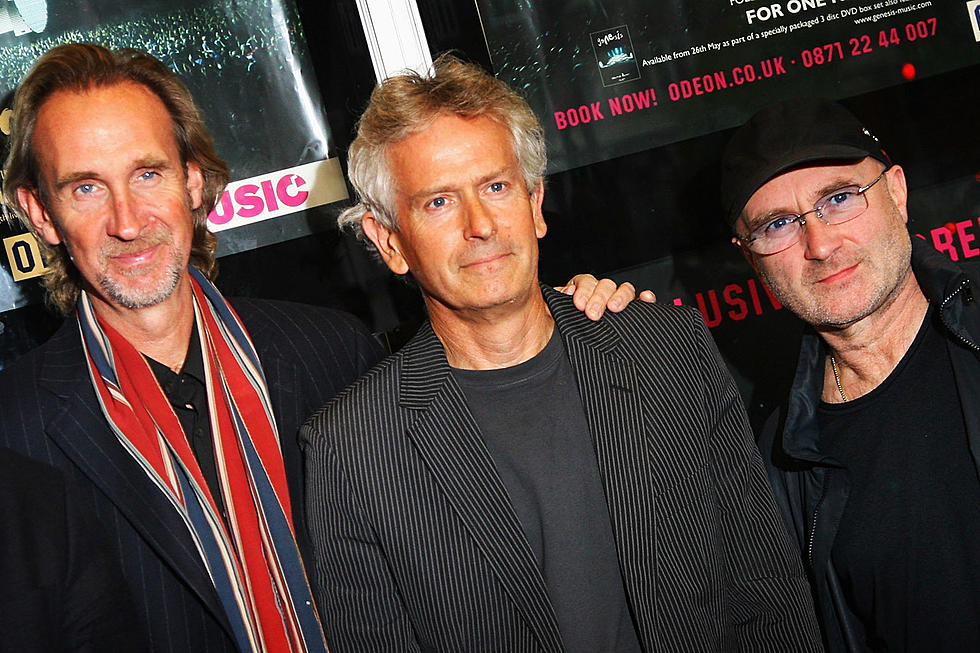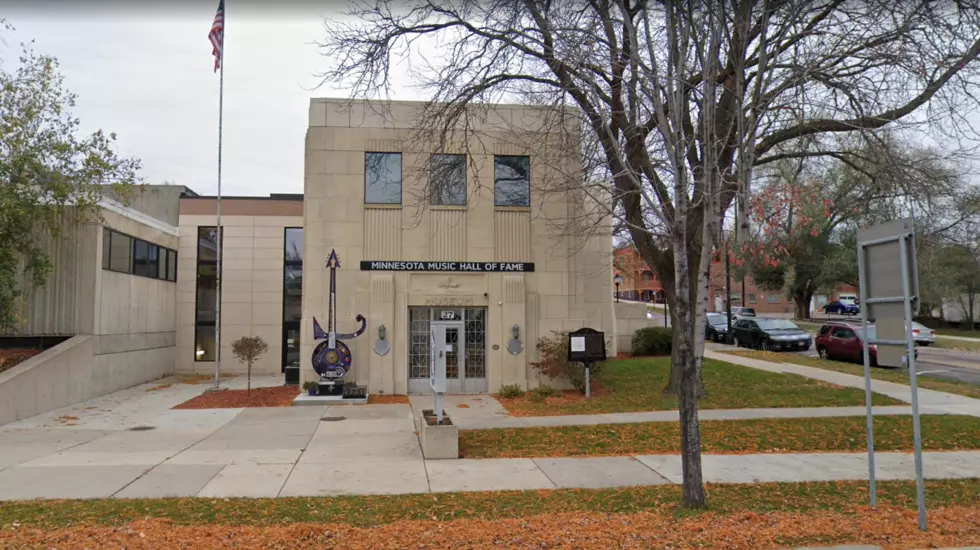
Why Genesis’ Final Makeover Attempt Failed on ‘Calling All Stations’
Genesis had replaced a frontman before, so Phil Collins' departure 20 years later didn't initially give guitarist Mike Rutherford too much pause. Then the lone project with Collins' successor Ray Wilson turned into Genesis' last studio album.
Calling All Stations arrived on Sept. 1, 1997 amid very long shadows. Drummer Collins assumed vocal duties from original frontman Peter Gabriel in 1976 when the group was still best known for issuing well-respected niche product tucked away in the progressive rock section of local record shops. He turned Genesis into a commercial juggernaut: Every album released by the core trio of Collins, keyboardist Tony Banks and Rutherford went at least platinum, beginning with 1978's And Then There Were Three. Genesis sold a staggering 12 million albums in America alone during the decade that followed, even as Collins became a solo star in his own right.
"At one stage, Phil was the most popular man on the planet, so I'm sure that brought in some fans," Rutherford told Reuters in 1997. "Until the last couple of albums, really, we were a bigger live band than a record band. I'm sure the audience swelled with Phil's success, but it was pretty solid before he even took over the singing and got his own solo success."
The American response to Calling All Stations soon made clear the depth of Rutherford's miscalculation. Wilson, a little-known singer whose lone claim to fame was work with a former grunge-influenced Scottish band called Stiltskin, was never given a chance.
"When Peter Gabriel left the band back in the '70s, people thought 'God, what are they going to do?'" Genesis' touring guitarist Daryl Stuermer told Innerviews in 2007. "But I think the difference is that Phil came from within the band — from within the family — and became the singer. That’s why that worked. Phil was already part of the band chemistry and he did very well."
Wilson won the job after nailing an audition where he sang along with a tape in which Collins' vocals had been erased. "For me, from the beginning, even when we had a huge list of people to consider, Ray was my No. 1 choice," Banks told Pause and Play in 1997. "He has more than lived up to it."
Watch Genesis Perform 'Congo'
Still, Wilson vocals tended to lean more toward Gabriel's proggy purr, rather than the pop-perfect style employed by Collins – and, to Genesis' detriment, Calling All Stations tried to have it both ways.
They actually seemed to find their footing with the long-form moments here: "Alien Afternoon," "The Dividing Line" and "There Must Be Some Other Way" paired well with Wilson's languid, darkly confidential vocals. A standout moment comes late, as the album-closing "One Man's Fool" combines a canny pre-9/11 examination of the mistakes made from indiscriminate retaliation with a very credible impersonation of Collins' angular drumming style by Nick D’Virgilio of Spock's Beard.
If they had left it there, perhaps Genesis could have moved on, having released a smaller-scale transitional effort aimed at recalling their first-gen period with Peter Gabriel. Problems arose, however, when Genesis attempted to scale the pop charts one more. First, Wilson didn't fit that mold. Second, the quality of material like "Congo" simply wasn't up to their platinum-era standards.
"There are some nice bits on the album," Rutherford said in a separate 2007 talk with Innerviews. "I look at it as if it could have been the first album of another phase of Genesis. The way forward would have been to do two albums very quickly. On the first album, we learned a bit, and maybe it lacked lyrically in some places. I think had we done three albums with Ray, the first one would have been viewed as a start, but not a great one."
Given more consistent songs, Wilson might have worked out – but Genesis simply wasn't able to replace Collins’ unerring sense for radio-friendly confections. Calling All Stations ended up stalling at No. 54 on the Billboard chart. Genesis canceled a planned U.S. tour, and then ultimately disbanded.
"I look at it as an unfinished job," Wilson said in 2013 interview. "We made a good start and then they gave up – that's my view. When replacing someone as talented and famous as Phil, it's going to take time and patience. However, I think we did a good album together, so that's what really matters to me."
Listen to Genesis Perform 'There Must Be Some Other Way'
The news wasn't all bad. Calling All Stations was better received in the U.K., where it reached No. 2 – but only one of its three singles (No. 29 "Congo") managed the break the Top 40 back home. The gravity of losing Phil Collins was finally sinking in.
"Ray did a fantastic job and he often doesn't get enough credit. He was great live, and it was a very hard gig," Rutherford told Innerviews. "I'm aware of how we could have improved the next album. I would have brought in someone else to co-write with us. I think Calling All Stations was lacking in some areas, so I think the second album would have been much better."
Ray Wilson returned to solo recordings – though he still sings Genesis songs, as evidenced by a series of band-themed live recordings he's issued since then. Banks and Rutherford later reunited with Phil Collins for a celebrated Genesis tour, before Collins spent a period of time in retirement.
In the end, Wilson would have every right to feel like he hadn't been given a fair shot, but instead he took it all in stride. "I feel the music we created together was good — and also an important part of the Genesis catalog. We should have continued, no doubt, but that’s life," Wilson said in 2013. "The name Genesis is one of the main reasons I am able to do this. I love writing and creating new music and performing those songs, but I also love playing the many great songs from the Genesis collection. So for me, life couldn’t be better."
Meanwhile, Rutherford insisted that this new configuration might have eventually moved past Calling All Stations, but he just didn't feel up to starting over again.
"Ray and Tony wanted to carry on," Rutherford told Radio.com in 2014. "I just thought it was a weird time for radio, things were changing – and to make it work, we would have to do an album and tour every year for three years. And I just didn’t have it in me. I didn’t feel I could do what was required to make it work."
Genesis Solo Albums Ranked
See Phil Collins in Rock’s Craziest Conspiracy Theories
More From KYBB-FM / B102.7










